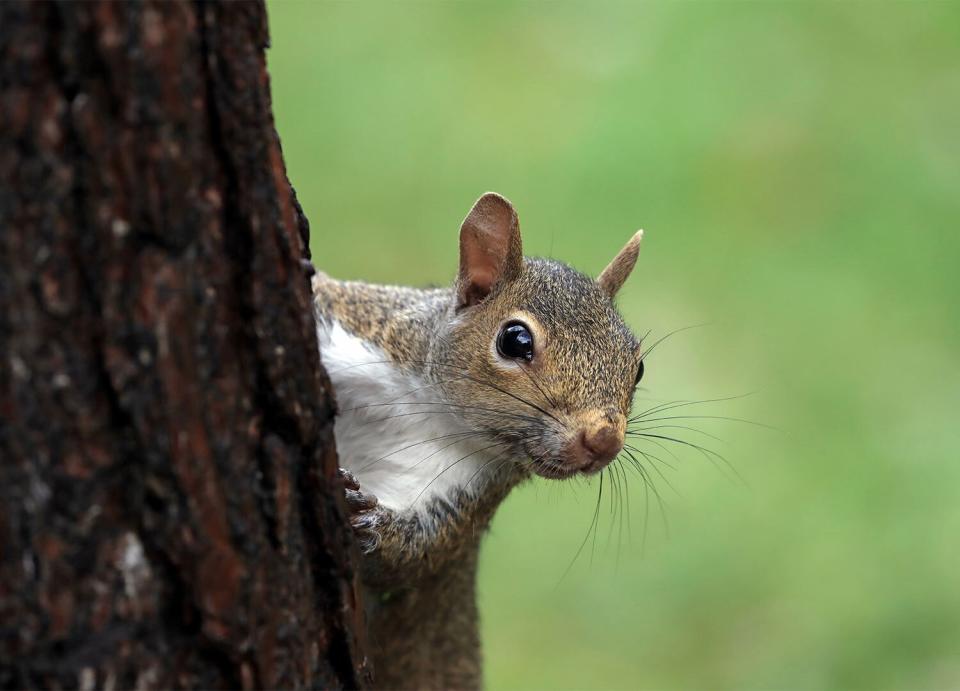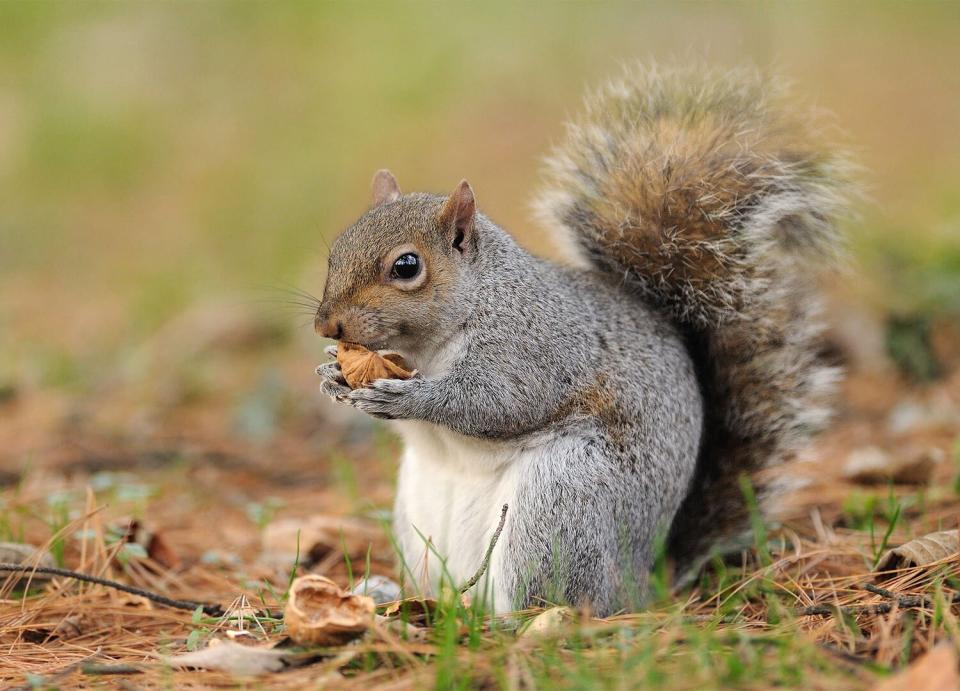Squirrels Share Personality Traits with Humans, Study Finds: 'Individuals Matter'

Getty
Squirrels may be much smaller than us, but the fun-sized furry rodents may have more in common with humans than we previously thought.
A new study conducted by University of California, Davis scientists and published in Animal Behavior this month reveals that squirrels share some personality traits expressed in humans, The Guardian reports.
The study found that squirrels express four traits — activity, sociability, boldness, and aggressiveness — which affect their movement, access to resources, and use of space in nature. Researchers conducted tests on the animals to determine that in some cases, "being more social could save an individual's life," according to an online UC Davis report on the study.
Scientists focused on golden-mantled ground squirrels specifically for the study, which is the first to document personality in the species. Although the animals are not endangered, researchers found that "understanding how an animal's personality influences use of space is important for wildlife conservation," the UC Davis website stated.

Getty
RELATED: Austin Firefighters Save Squirrel Who Got Its Head Stuck in a Tree: 'Not an April Fools' Joke
Lead study author Jaclyn Aliperti told UC Davis she and her colleagues used four tests to determine personality in squirrels: novel environment, which placed the animals "in an enclosed box with gridded lines and holes"; mirror, which set the squirrels in front of a mirror image of themselves; flight initiative, in which researchers slowly approached squirrels in a wild setting to time how long before they ran; and behavior-in-trap, which observed caught unharmed squirrels in traps.
Related video: Tips for keeping squirrels out of your bird feeder
The findings revealed that the bolder squirrels benefited from their behavior, obtaining "larger core areas where they concentrated their activity." The bold animals also moved more quickly, were "more aggressive," "more active," and "had greater access to perches," where the animals can keep an eye out for potential predators.
RELATED: NASA Engineer Builds Impressive Obstacle Course to Stump Seed-Stealing Squirrels
Aliperti told UC Davis, "This adds to the small but growing number of studies showing that individuals matter."
She added, "Accounting for personality in wildlife management may be especially important when predicting wildlife responses to new conditions, such as changes or destruction of habitat due to human activity."
While golden-mantled ground squirrels are considered to be asocial, according to the study, "within this asocial species, individuals that tend to be relatively more social seem to have an advantage."
Aliperti, who worked on her study while earning a Ph.D. in ecology at UC Davis, told the university's website she sees the UC Davis squirrels "more as individuals" rather than a whole species. "I view them as, 'Who are you? Where are you going? What are you up to?' versus on a species level," she explained.
"Animal personality is a hard science, but if it makes you relate to animals more, maybe people will be more interested in conserving them," Aliperti added.

 Yahoo Finance
Yahoo Finance 